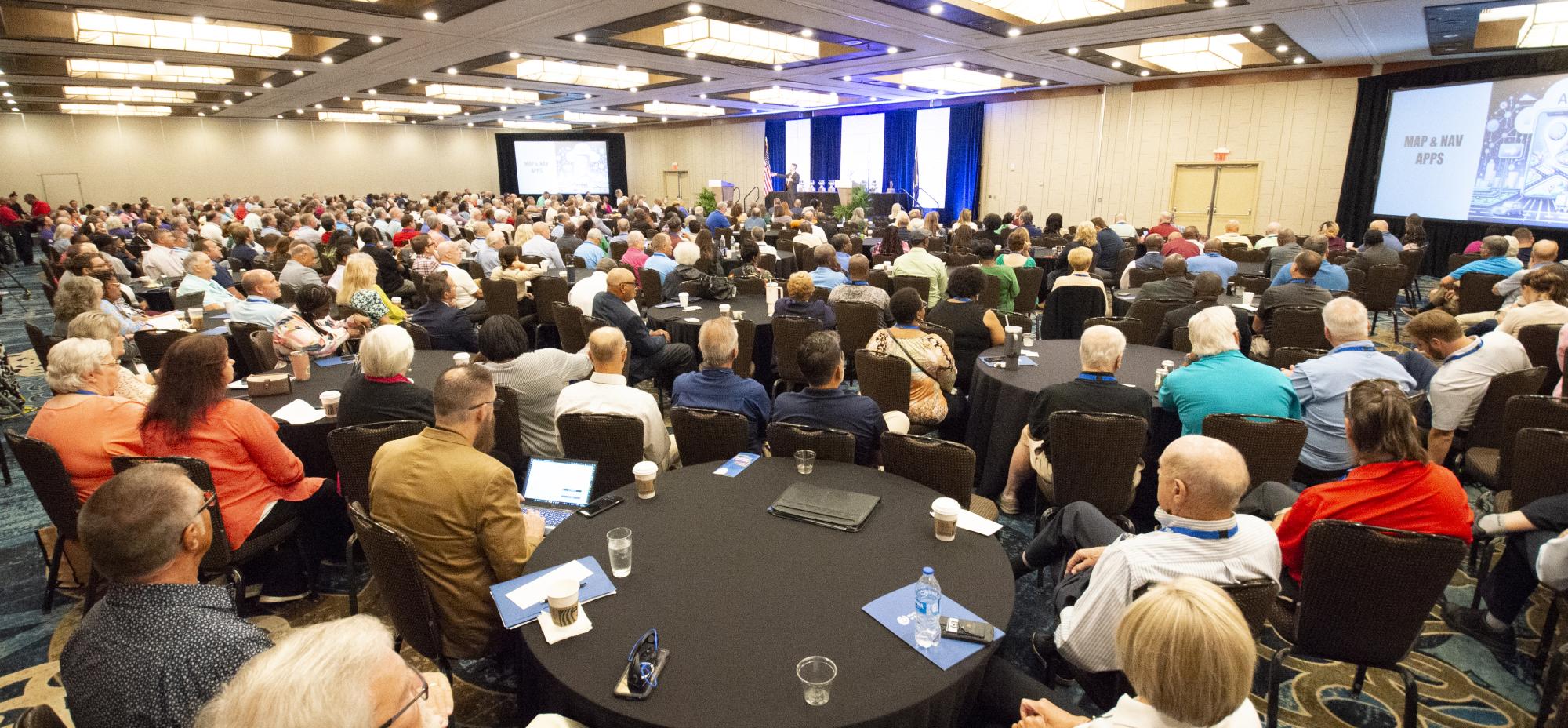
Representatives from cities and towns across South Carolina gathered in Greenville from July 18 through 20 at the Municipal Association’s 2024 Annual Meeting to dive into topics as diverse as cultivating new generations of city leadership and managing the growing technological presence of artificial intelligence.
President-elect Greg Habib, right, recognized outgoing President Barbara Jo Blain.
Greg Habib elected new Association president, President Barbara Jo Blain completes term
City and town officials elected Goose Creek Mayor Greg Habib as the new president of the Municipal Association of SC during the Annual Meeting. In his remarks, Habib called attention to many of the Association’s projects, including its new Build the Bench program, which places interns with host municipalities to build a strong and diverse pool of future job candidates. Goose Creek has hosted several of the initiative’s first interns, one of whom now works for the city in planning.
“I believe it is our responsibility to prepare our employees for their next opportunity, whether it's in our city or not,” Habib said. “In doing so, we will have a better employee. But equally as important, the next opportunity will be filled with the most qualified people.”
Conway Mayor Barbara Jo Blain, the Association’s outgoing president, reflected on legislative advocacy of the past year. These include ongoing relationship-building with South Carolina’s congressional delegation and their staffs; the passage of S1021, extending the South Carolina Abandoned Buildings Revitalization Act to 2035; and the efforts of many cities and towns to pass hate crimes ordinances, demonstrating the need for and support of such laws since the General Assembly has not yet passed a statewide hate crimes law.
Blain also called upon cities and towns to keep up their focus on civility in local government, especially during a year with a contentious national election.
“Many times, people on opposite political sides can't see past political views to see human beings behind those opinions. As leaders of our communities and local governments, we must meet past the bluster and the rhetoric and encourage working together,” she said. “I realize that might sound naive, but trash pickup doesn't care if you're one political party or another. Clean water doesn’t care if you’re one political party or another.”
Executive Director Todd Glover focuses on leadership
Municipal Association Executive Director Todd Glover addresses the 2024 Annual Meeting.
Municipal Association Executive Director Todd Glover continued the discussion of municipal leadership. He drew attention to a recent case where the Town of Sullivan’s Island, the place where the palmetto tree became the symbol of South Carolina, faced an impending cutting of large numbers of palmetto trees to protect electrical lines. Mayor Patrick O’Neil and the town council worked with the utility and other stakeholders, and helped arrange for tree replacements, reducing the number of trees to be cut by half.
Glover also discussed the Association’s civility in local government initiative, which he noted has gained traction through other municipal leagues as well. The effort, he said, remains as important as ever.
“We have a generation that's learning incivility as a skill, and what I mean by that is they see older folks acting out, and people capitulating, and them getting what they want,” Glover said. “If you have not adopted our civility program, I highly recommend that you do. That [Civility] Pledge that we said earlier is a powerful message for any public gathering, but especially that of a city or town. That message is, one, that ‘this is what we strive to do.’ That’s the vision. Two, it makes us hold each other accountable for our actions.”
Brian Carter discusses challenges and opportunities of AI
Artificial intelligence, through which computers process material to enable them to perform a variety of problem-solving tasks in a way that simulates human intelligence, has attracted huge amounts of attention in recent years since the launch of programs like ChatGPT or Microsoft Copilot, including in municipal circles. In his keynote address, speaker and author Brian Carter addressed this technology that he said his audience must adapt to, given that many computer applications are already using it.
AI can add value and efficiency to operations, allowing for everything from data summaries and trend detections to providing starting points for documents like proclamations and speeches, and can summarize documents and detect trends. While AI can absorb and analyze far more data than a human can in a lifetime, Carter said, it requires human guidance to work well. He added that it needs to be fact-checked because it can produce false information, and it can come with privacy concerns about the data it uses.
“We’re always going to need experts, we’re always going to need original ideas and creative people,” he said. “It’s not going to do everything.”
